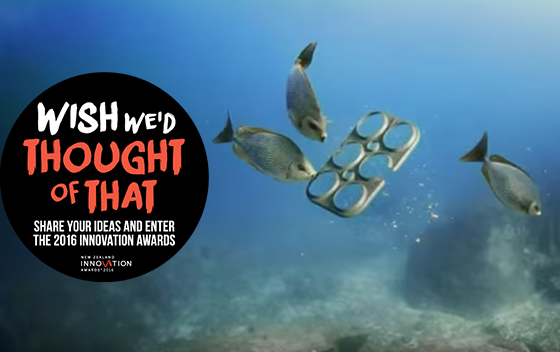Wish we’d thought of that: saving the world, one sustainable innovation at a time

Do you have an innovation worth celebrating? Check out the categories of the 2016 Innovation Awards and tell your story by clicking here.
Ian Wright, a Kiwi who co-founded Tesla, looked at the numbers and found it wasn’t cars doing the most driving—and, so, environmental damage. It was big, gas-guzzling trucks and buses. So his company Wrightspeed decided to focus on them instead.
Not the vehicles in their entirety, just the powertrains (that’s the engine, transmission, drive shafts, differentials and the final drive, for the mechanically-disinclined). And there’s money to be made, too. According to the US Department of Energy, the U.S. medium-duty truck fleet burns $22 billion in fuel annually, with the US refuse truck fleet burning about another $6 billion in fuel (about $35k per truck per year). That’s a lot of gas, and with notoriously high emissions, truck fleet operators are increasingly looking to electric solutions to combat their rising costs.
That’s a market Wrightspeed plans on exploiting. Wrightspeed’s powertrains surpass even California’s emissions standards (the most stringent in the country) by a factor of 10. The company is now the leading manufacturer of range-extended electric powertrains for medium-duty and heavy-duty trucks, improving commercial truck efficiency and dramatically reducing fuel costs.
As Peter Yealands said when accepting his World Class New Zealand Award a few weeks ago, there’s too much waste in the world. And if you’re smart, you can turn it into revenue—and a great brand story. Whether it’s using plastic instead of glass bottles to reduce carbon emissions from transportation, taking prunings that would usually be dumped and burning them to heat the plant, installing massive solar panels, or using char in compost to make the wine better, Yealands lives its slogan ‘think boldly, tread lightly.’ As Yealands says, on their own they might not worth talking about, but put together they make it the most sustainable vineyard in the world.
Speaking of waste, DB Breweries and its agency Colenso BBDO have recently returned from the world’s biggest creative awards festival, Cannes, laden with metal for Brewtroleum, which took the leftovers from the brewing process and created biofuel.
DB Export created over 300,000 litres of biofuel in its first batch last year, which was distributed to 60 Gull service stations around the country. And given its success—and all the awards it’s won—it seems likely to return.
As DB’s head of domestic beer marketing Sean O’Donnell told StopPress last year: “All the media said that this would be a joke. They said, ‘you’ll only produce one container or one truckload’. And the genius was that you can be a little irreverent when you have the real credentials of a petrol station being involved. The takeover of Gull was really important, because it brought a real credibility to the campaign.”
DB is owned by Heineken, and it’s thought the parent company was impressed with the thinking—and the potential cost-savings—and is looking into recreating it at their larger breweries. As the marketing slogan goes: drink beer, save the world.
Commercial fishing is often, as has been well-documented, fairly wasteful. But Precision Seafood Harvesting, which won the supreme award at the 2014 Innovation Awards, has come up with an ingenious net design that allows fishing boats to catch more of what they want.
Since the launch of the more sustainable nets, the company saw the increasing demand from consumers to be more connected to where their food comes from—and the methods used to harvest it.
This has led to the Tiaki brand, which includes a traceability app. When consumers buy Tiaki caught fish, which will be available in Auckland later this year, the app will allow them to access information relating to where it was caught, how it was caught and information about the species. Hoki, alfonsino, snapper, gurnard, john dory, trevally and kingfish are all included. Mmmmm, sustainability.
Plastic is very handy for humans, but very bad for sea creatures. So many companies have attempted to re-use ocean waste in new products. Adidas is the latest to dive in and, working Parley for the Oceans, it has created a limited edition run of a 3D printed sneakers made out of recycled plastic.
By why just re-use when you could potentially remove? Saltwater Brewery has looked at the problem in a different way and devised a way to reduce pollution with what it calls the world’s first edible six-pack ring.
As Springwise explains, the ring is “made from wheat and barley beer production waste, which is completely biodegradable, compostable and most importantly, edible for marine life”. Slaking thirst while assuaging guilt. Wish we’d thought of that!
- Next week, inspirational brilliance to get you thinking about the innovation in education, training and development category.





